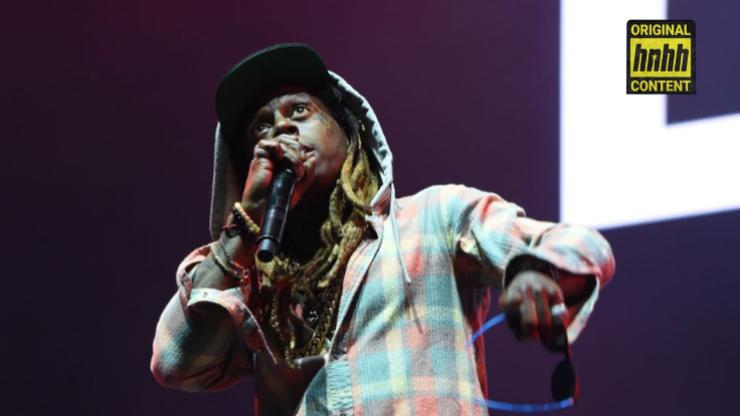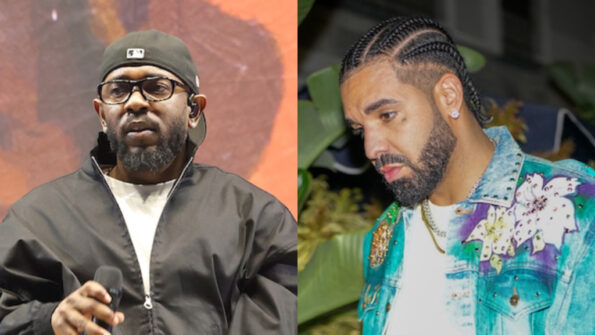Twelve years removed from its initial release, Lil Wayne’s “Lollipop” remains an artistic turning point for the legendary Cash Money rapper.
There isn’t a self-respecting rap fan out there who doesn’t hold in high esteem. Not only is the man widely considered to be one of the deadliest lyricists on a competitive basis, threatening to decapitate even his own signees on wax, but also one of the most stylistically versatile. Though his forays into different genres have not always seen glowing reception — 2010’s Rebirth remains an interesting sidestep into the murky waters of rap-rock— his bold creativity is nothing short of admirable. It’s likely one of the main factors behind his universal appeal, a fanbase made-up of myriad demographics for an equal number of reasons.
Quick though die-hards may be to cite his esteemed lyricism, some of Weezy’s most successful chart-toppers find him operating in melodic territory. Few managed to sustain universal interest like Tha Carter III’s lead single “Lollipop,” originally released on March 13th, 2008 — a little over twelve years ago. It has been certified 5X platinum by the RIAA, though it’s highly likely the numbers have expanded significantly since it was archived in December 2009. In the year of its original release, “Lollipop” became the crowning achievement in ringtone rap back when that was still a thing. To this day, it stands triumphant as the most successful single of Weezy’s career. It might also be one of his least lyrical. Considering how much of Wayne’s appeal stems from his “best rapper alive” mentality, the staggering admiration of “Lollipop” is curious to say the least.

Mat Hayward/Getty Images
On paper, much of “Lollipop” is almost comically anti-bars; gallows humor that resonates all the more given its proximity to ’ own Hip Hop Is Dead and Jay-Z’s nail-meet-coffin anthem “Death Of Autotune.” Nearly sixty percent of the song’s lyrical content centers around repetition, with the late Static Major holding it down with the song’s iconic hook. The same man who once laid waste to a blistering mixtape run that many still revere to this day won hearts and minds with his wizened smut mantras: so I told her back it up like burp, burp, and I made that ass jump like jerp, jerp. Yet somehow, it all comes together to work in magnificent fashion. Perhaps because Wayne already proved his acumen as a lyricist, he was able to pivot into mindless frivolity without much backlash from fans. Lest we forget, on the same album “Lollipop” came from stand songs like “3 Peat,” “Mr. Carter” and “Shoot Me Down.” A little fun should not only be expected — it should be welcomed.
Listen, putting the bars of “Lollipop” under the microscope for analysis feels almost condescending. Simply put, the song is a celebration of oral sex, a topic that has been known to bring people together on a worldwide level — social distancing notwithstanding. Could it really be so simple? That “Lollipop’s” rampant success was simply sex sells in action? It certainly didn’t hurt the cause given that it was clearly designed for club-rotation, strip or otherwise. But we’ve long seen x-rated bangers come and go throughout the genre, with few ever coming close to “Lollipop’s” success. It stands to reason that Weezy’s musicality played a role in cementing the song’s appeal.

Denise Truscello/WireImage/Getty Images
The instrumental, produced by the tandem of Jim Jonsin and Deezle, centers heavily around the repetition of a truncated minor scale. As such, it has become easy jam fodder for a variety of different instrumentalists, with the song sounding especially punchy on the guitar. The band Framing Hanley’s emo take on the anthem has assembled twenty-two million views on YouTube, and countless others have ventured their hand at covering the banger. Blame it on the simplicity of the arrangement. Either way, it’s tempting to document “Lollipop” as one of Weezy’s earliest bouts of pre-Rebirth experimentation. It definitely stands as one of his earliest documented instances of autotune usage, a practice that would remain in his arsenal for the remainder of his career.
In fact, Tha Carter III feels like a major detion for Weezy in general, with the first installment being produced in its entirety by Cash Money legend , while the second found him working with a core that included T-Mix and DVLP. With the third Carter arriving on the heels of his legendary mixtape spree, Wayne was forced to contend with a since-developed macabre habit: bloodletting the instrumentals of his fellow emcees. Determined to prove himself as not only an elite lyricist but an artist as well, Wayne allowed himself unprecedented space to gamble with new sonic directions.
While some might look to Weezy’s minimalist “Lollipop” bars with a scornful eye, others might applaud his borderline surgical use of restraint. A solid quality in a genre where the threat of doing too much forever looms. Much like the track’s cleverest lyric suggests, “Lollipop” feels right when it should be wrong. If only because it managed to not only survive, but thrive in an era where hip-hop was deemed to be on life-support by critics and elder statesmen alike.



